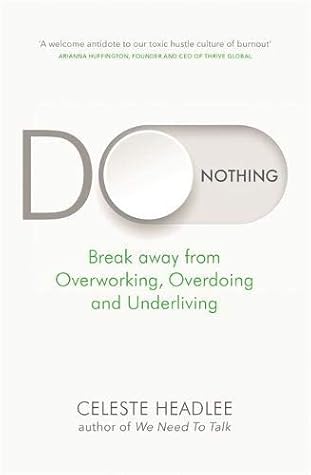More on this book
Community
Kindle Notes & Highlights
Far too many of us have been lured into the cult of efficiency. We are driven, but we long ago lost sight of what we were driving toward. We judge our days based on how efficient they are, not how fulfilling.
Henry George wrote, a human is “the only animal whose desires increase as they are fed; the only animal that is never satisfied.”
Sadly, two things occurred that prevented a drop in working hours: a rise in consumerism and a steep rise in income inequality.
the more valuable something becomes, the scarcer it seems.” Translation: The more money you make, the more likely you’ll believe that you have no time to waste. This helps explain why I felt more overwhelmed as my income rose.
Kids with helicopter parents are significantly more likely to suffer depression, and there’s a strong link between a highly structured childhood and a lack of executive-function capabilities.
When our minds are allowed to relax and rest, they return to what’s called the “default network.” This is the part of the brain that sorts through all the new information we’ve received recently and tries to put it into context with what we already know. The default network is integral to learning, insight, and imagination. If our minds never come to rest, there is never an opportunity to wander into new directions.
If your goal is less stress and more happiness, years of scientific research have proven that rather than trading your time for money, it’s best to trade your money for time.
Work is necessary and can be fulfilling when you feel a sense of purpose in what you do, but it is not the justification for your existence. Remember that we are not biologically and evolutionarily “born to work.”
Increase time perception. Create your ideal schedule. Stop comparing at a distance. Work fewer hours. Schedule leisure. Schedule social time. Work in teams. Commit small, selfless acts. Focus on ends, not means.


